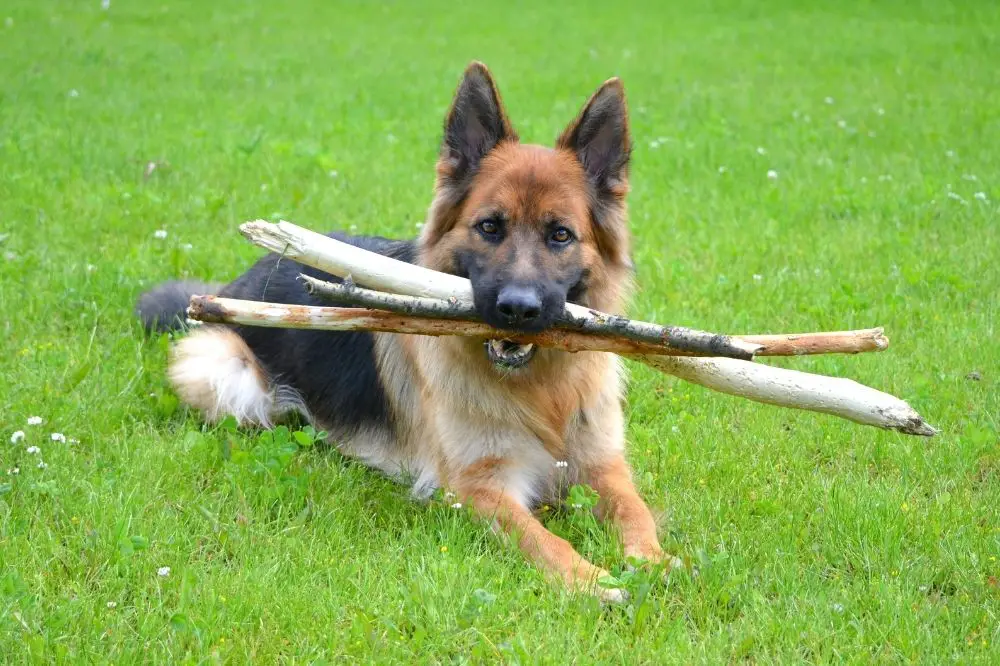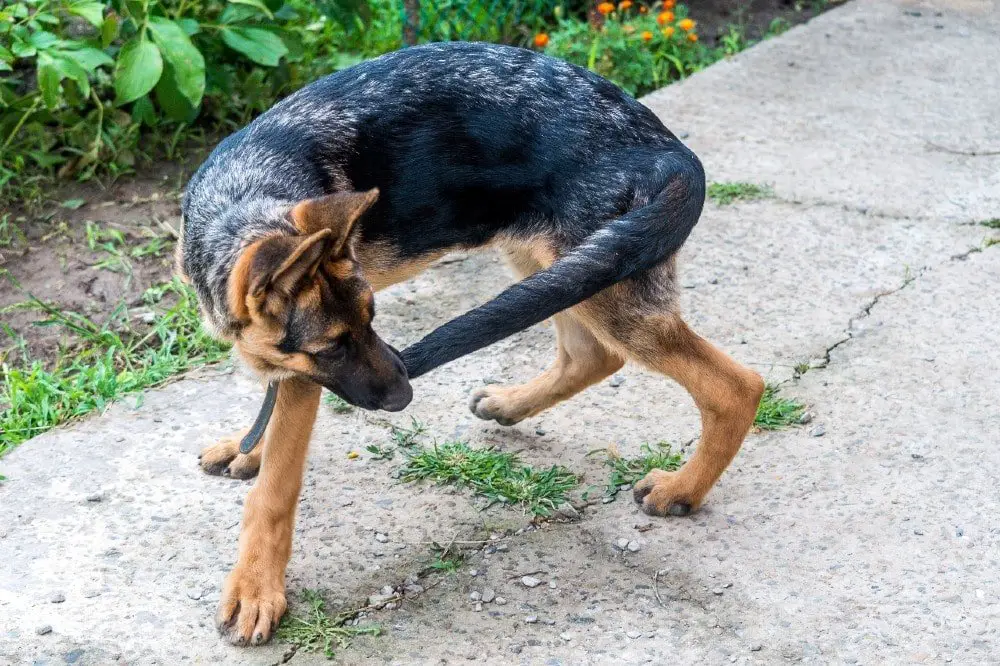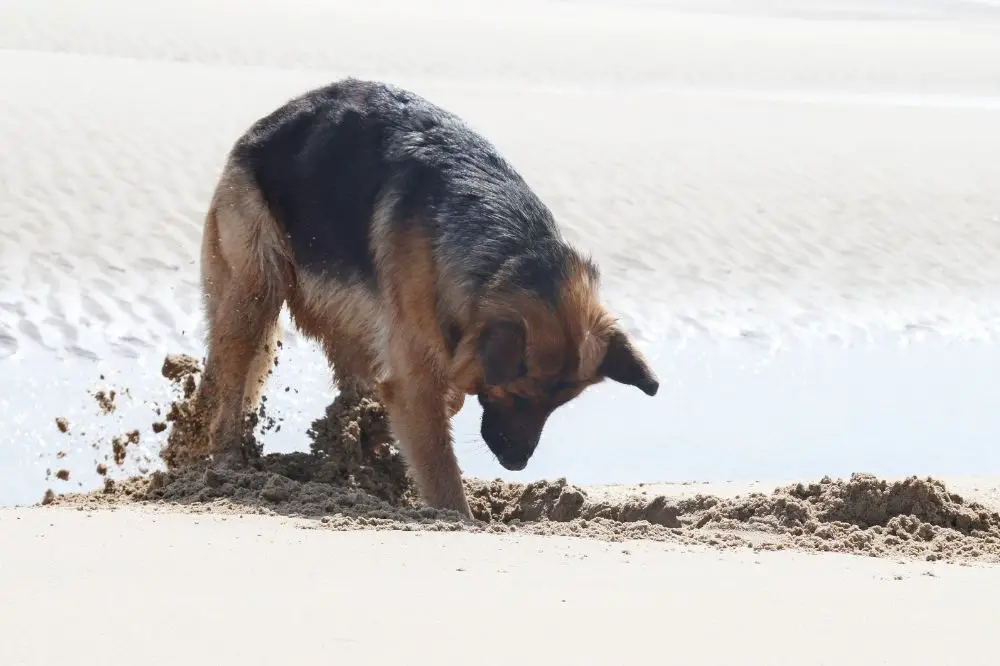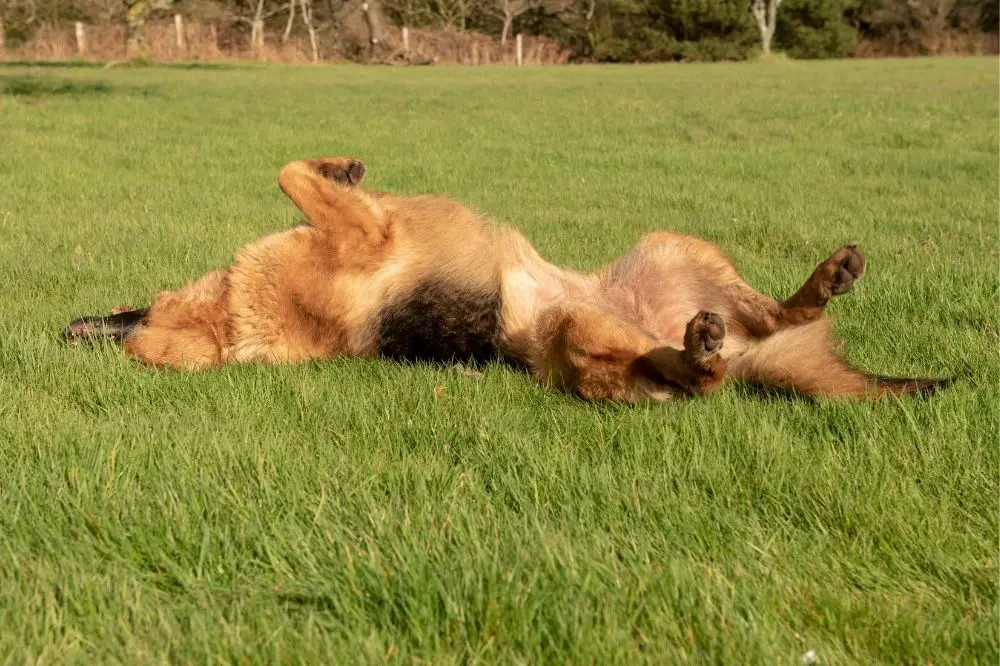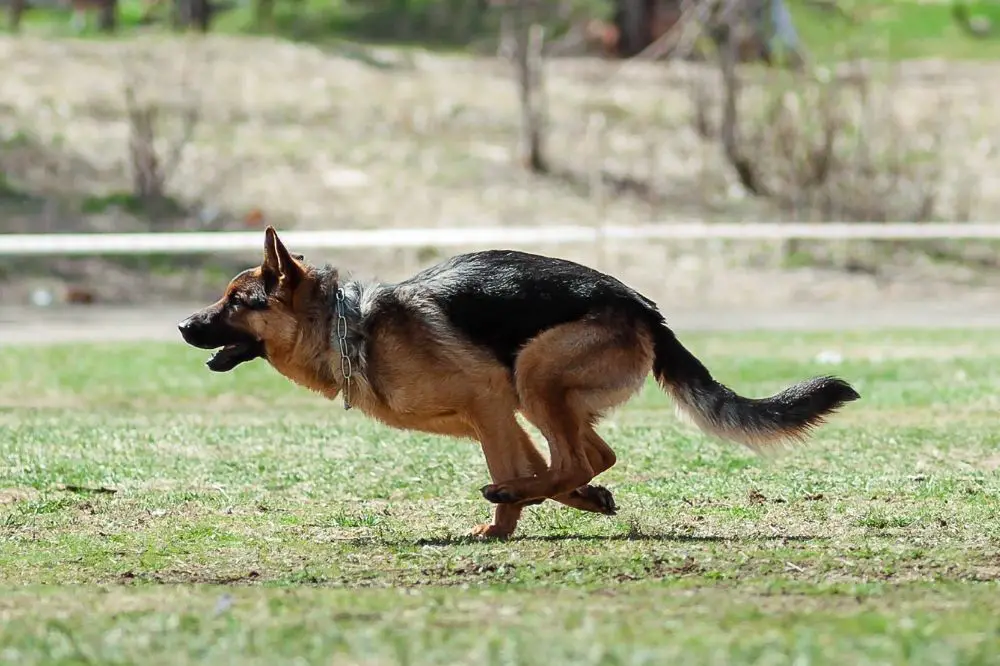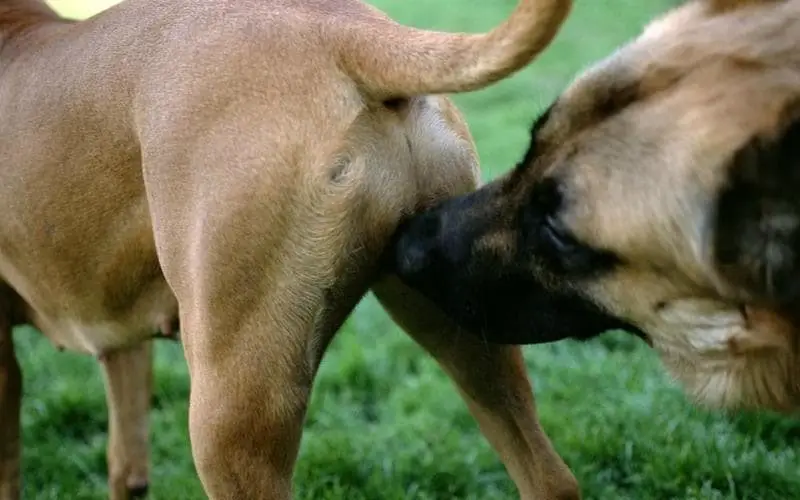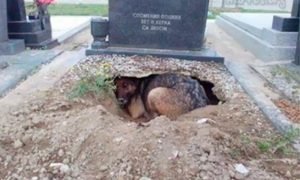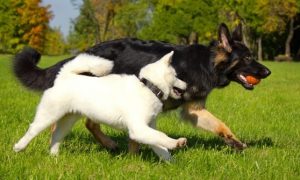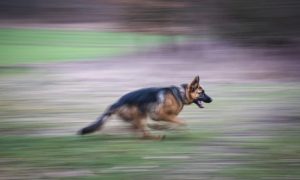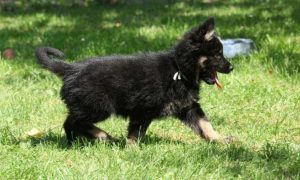Weird Things Dogs Do and Why
Dogs do things that seem weird to humans. Common dog behaviors like barking and chewing are normal, but some behaviors may seem weird and worry or concern dog owners.
Attacking the vacuum is a typical dog behavior commonly done out of fear, aggression, or play. However, some behaviors could signal health issues that require a veterinarian’s diagnosis.
Below are ten weird behaviors and the reasons why dogs do them.
1. Why Dogs Chase their Tail
A puppy chasing its tail is normal behavior. When a puppy realizes its tail is following them, its natural reaction will be to catch it and play with it. A puppy will initially view its tail as a toy rather than a body part.
When owners laugh or encourage the behavior, they unknowingly reinforce such behavior. If the behavior isn’t discouraged or stopped, a puppy will continue chasing its tail into adulthood, seeking positive attention from its owners.
Adult dogs who suddenly take up chasing their tail could be signaling they are nervous, bored, anxious, or under-stimulated physically or mentally.
Tail chasing and tail biting are two different behaviors.
Tail biting can occur due to parasites, flea allergy dermatitis, gland issues, or irritation around their bum area that may require veterinary assistance. Tail biting can lead to hair loss, sensitive skin, wounds, infections, and other medical issues.
Tail chasing is a typical stage for puppies to go through, and while it’s initially cute, it’s best to stop this behavior by redirecting your furry friend to something else.
2. Why Dogs Spin in Circles
Dogs running or spinning in circles is normal behavior that stems from play or excitement.
Spinning is a way for dogs to release excited and happy energy. Dogs will obviously spin in circles when trying to catch their tails.
Dogs will also spin in circles when their leash or harness are brought out for walks or outings, when owners return home or guests come over, or when meals are being prepared.
Another natural behavior is to circle numerous times before relieving themselves or laying down for a snooze. This circling behavior is instinctual and related to scent and territory.
If your dog circles obsessively, you need to determine if the behavior is a genetic trait in the breed or line, a compulsion that could be caused by stress or boredom, or a health concern.
Constant circling or spinning could indicate an ear infection, brain lesion, or seizure.
When senior dogs circle, pay attention, especially if this behavior is new or seems weird. Circling in older dogs can indicate dementia, vision or hearing loss, or another medical issue.
3. Why Dogs Dig
Digging is normal instinctive behavior dogs inherit from their wolf ancestors
Some breeds are genetically wired to dig more than others, and external circumstances trigger some dogs.
Reasons why dogs dig:
- It’s fun
- Boredom
- Anxiety
- Genetics – some dogs like terriers were explicitly designed and bred to flush out underground rodents and critters
- Comfort – dogs dig holes in warm weather to stay cool and dig holes in cold weather to keep warm
- Burying toys or food
- To escape yard or confinement
Even if your dog is not a problem digger, they may dig in their bed, your bed, or furniture. Learn more about this behavior here.
Digging can be costly and frustrating for owners. Learn more about digging and how to stop your dog from doing it here.
Digging is a normal dog behavior. However, eating dirt isn’t and could be a sign of hunger or nutritional deficiencies like lacking vitamin B or iron.
4. Why Dogs Eat Poop
If your dog eats poop, their own or others, it’s a gross behavior. It’s estimated that around 16% of dogs eat feces.
The two most popular reasons behind why dogs eat poop are:
- Behavior
- Diet
It is not uncommon for young puppies to snack on poop because of opportunity. However, most puppies grow out of this behavior. For puppies that continue to eat poop, it can become a habit.
Dogs confined to areas like outdoor kennels may eat poop to keep their space clean.
Dogs scolded for relieving themselves in the house may eat poop to hide the evidence and avoid punishment.
Some dogs who eat poop are also guilty of eating anything they come across, like grass, sticks, rocks, dirt, furniture, toys, garbage, clothing, etc.
Some experts believe dogs that eat poop lack nutrition and vitamins in their diet, but there is no scientific evidence to prove this theory.
Learn how to stop your dog from eating poop here.
5. Why Dogs Roll in Stinky Things
Dogs rolling in stinky things like poop, garbage, rotting dead animals, manure, garden compost, etc., is weird and gross behavior to owners.
Experts don’t know exactly why dogs do this behavior, but here are some of the theories.
- Marking their territory
- Camouflaging their scent
- Boredom or attention
Dogs will urinate over another animal’s urine to mark their territory. Rolling in something foul may be a way to cancel out the smell and leave their scent as a warning or calling card to other dogs or animals.
Some experts believe that rolling in stinky things is a way for dogs, or wolves, to mask their scent from predators.
Lastly, some believe domesticated dogs love to frolic in stinky things because it’s fun. The smells may be repulsive to humans, but it’s hard to resist for our four-legged friends, and the behavior gets their owner’s attention.
6. Why Female Dogs Hump
Dog humping is commonly thought of as a reproductive act initiated by male dogs.
However, female dogs in heat can initiate flirtatious behavior like positioning themselves in front of males and lifting their tails.
So many pet owners find it weird when their female dog starts going at it on toys, legs, pillows, other dogs, etc., and it doesn’t matter if they are spayed or not.
Female dogs can be guilty of humping as much as male dogs and have nothing to do with sexual behavior.
Some common reasons why puppies and dogs of both sexes hump are:
- Play
- Excitement
- Dominance
- Habit
- Attention
To learn more about dog humping reasons and how to stop it, click here.
7. Why Dogs Have Crazy Bursts of Energy
If your dog takes off running in circles in short-lived crazy bursts of energy, this might seem like weird dog behavior but is actually referred to as dog zoomies.
The technical term for zoomies is Frenetic Random Activity Periods or FRAPs for short.
Zoomies are pent-up excess energy that can happen in the morning after a good night’s rest, after being confined for an extended time like long car rides, after pooping, or after stressful occurrences like baths or trips to the vet.
Zoomies are completely normal and can occur for any reason, at any time of the day or night. Zoomies are more typical in young dogs, but the zoomie urge can happen at any age and in any breed.
The next time your dog has a case of the zoomies, stay out of the way and rest assured they will be over soon.
To learn more about dog zoomies click here.
8. Why Dogs Lick their Butt
A dog licking its butt may seem weird and unhygienic to humans, but it’s a perfectly normal dog grooming behavior that often occurs after a dog has relieved itself.
If your dog’s butt is irritated or itchy, its natural response is to seek relief through licking.
If butt licking becomes excessive, it could signify gland issues, infection, parasites, or another medical condition. A trip to the vet may be necessary.
9. Why Dogs Sniff Everyone’s Butt
A dog sniffing your butt, stranger’s butts, and other dogs’ butts is embarrassing and weird to humans but is normal behavior for dogs.
Through facial expressions, handshakes, hugs, and small talk, people perform meet and greets. Dogs get their information from sniffing butts and genitals.
Sniffing another dog’s butt or genitals can provide gender, reproductive status, health, diet, temperament, and more.
Realize your dog sniffing everyone’s butt is a normal instinct, but you can discourage this behavior directed towards humans by calmly redirecting your dog’s attention away from their target.
10 . Why Dogs Lick Furniture, Bedding, and Carpet
Licking objects is an annoying behavior that some dogs seem to do more than others, and yes, it can seem weird.
There are various reasons why dogs lick objects, such as boredom, anxiety, hunger, and medical issues.
According to studies, licking causes endorphins to be released in the brains of animals, making them feel calmer and more relaxed.
Healthy dogs who lick compulsively may just be seeking an endorphin rush.
So in simple terms, some dogs lick because it makes them feel good.
Let’s look at why some dogs become obsessed with licking certain items.
Dogs lick furniture and blankets for multiple reasons. One reason is food crumbs or spills left behind on blankets and furnishings or in between cushions. Even if spills or crumbs have been cleaned-up, a dog can still detect what was once there.
Dogs who lick furniture and blankets may do it because they can smell their favorite human on these items. Dogs are also drawn to the salty taste humans emit through sweat during warm weather, which can be left behind on furniture and blankets.
Dogs lick their bed because it belongs to them. Some dogs will instinctively clean where they sleep and mark their bed with their scent. This behavior is similar to dogs marking their territory by peeing on items or over other dogs.
If your dog licks their bed when they first get in it, they may just be settling in and releasing some relaxing endorphins before a snooze.
Dogs who lick carpet or rugs before they lay down may do it for the same reasons listed for licking their bed.
Other reasons dogs lick carpeting and rugs can be because of food or drinks spilled on the carpet.
As humans, we transfer scents from our shoes to carpeting and flooring, which may entice dogs to lick.
Aside from behavioral issues or reasons listed above, some dogs lick because the texture of an item feels good on their tongue.
If a dog compulsively licks items non-stop, this could indicate pain, hunger, thirst, tooth or gum disease, GI conditions, or other serious health issues that a vet should diagnose.
Odd dog behaviors that seem weird to humans are often pretty normal once you understand a dog’s perspective.
Any behavior that seems extreme could indicate a health problem that you shouldn’t ignore. Follow your instincts and make a vet appointment for your canine companions well being and your peace of mind.

